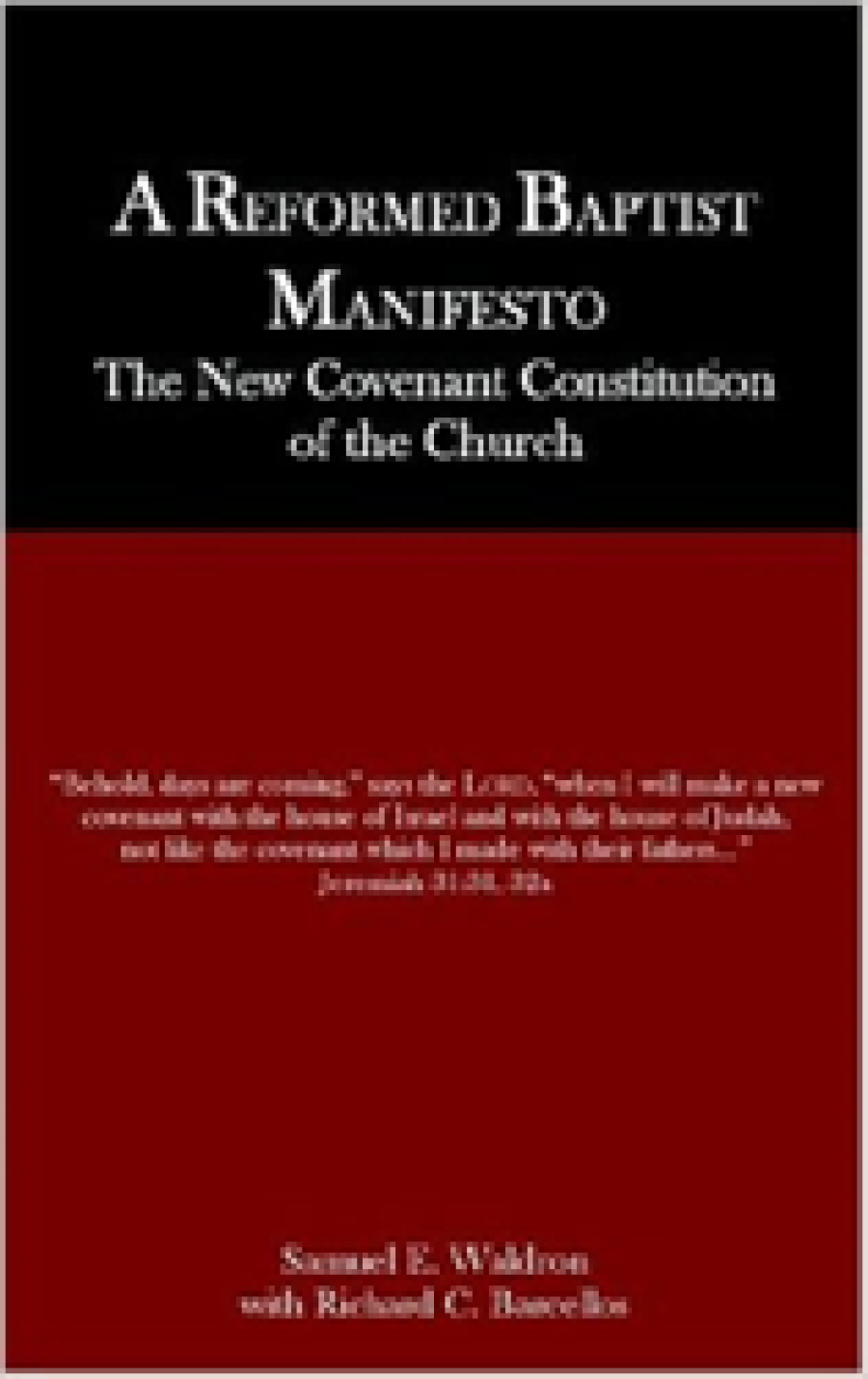Theology Thursday - Reformed Baptists on the Christian & the Law
Image

On “Theology Thursday,” we feature short excerpts on various areas of systematic theology, from a wide variety of colorful (and drab) characters and institutions.
From Samuel Waldron and Richard Barcellos, A Reformed Baptist Manifesto: The New Covenant Constitution of the Church (Palmdale, CA: RBAP 2004).
The word antinomian simply means against law. There are various types of Antinomians, but in some way or another, all Antinomians deny that the Ten Commandments as a unit are a rule of life for the Christian. Historically, Antinomians have been labeled differently, depending on the type of antinomianism to which they adhere.
Practical Antinomians not only teach against the law in the Christian life, they often advocate lawless living. Doctrinal or Moderate Antinomians, however, do not advocate lawless living, but they deny the third use of the law (i.e. the Ten Commandments as a rule for Christian living) or, at best, advocate it but redefine what law means … The Ten Commandments function as the epitome of the Moral Law in the Bible, as we will see. Many in our day deny this crucial fact. Many Christians in our day are, therefore, Antinomian in some sense.1
…
The key to understanding the assertion of Jeremiah 31:33 and, indeed, one of the keys to understanding the whole biblical doctrine of God’s law is the distinction asserted in the 2nd LCF … Chapter 19 paragraphs 2-5 state this important distinction this way:
- (2) The same law that was first written in the heart of man continued to be a perfect rule of righteousness after the fall, and was delivered by God upon Mount Sinai, in ten commandments, and written in two tables, the four first containing our duty towards God, and the other six, our duty to man
- (3) Besides this law, commonly called moral, God was pleased to give to the people of Israel ceremonial laws, containing several typical ordinances, partly of worship, prefiguring Christ, his graces, actions, sufferings, and benefits; and partly holding forth divers instructions of moral duties, all which ceremonial laws being appointed only to the time of reformation, are, by Jesus Christ the true Messiah and only law-giver, who was furnished with power from the Father for that end abrogated and taken away.
- (4) To them also he gave sundry judicial laws, which expired together with the state of that people, not obliging any now by virtue of that institution; their general equity only being of modern use
- (5) The moral law does for ever bind all, as well justified persons as others, to the obedience thereof, and that not only in regard of the matter contained in it, but also in respect of the authority of God the Creator, who gave it; neither does Christ in the Gospel any way dissolve, but much strengthen this obligation.
Many in our day deny this distinction. Both dispensationalism and some professedly Reformed theologians want us to think that no Israelite could have seen the difference between moral laws on the one hand, and ceremonial-judicial laws on the other. Now, of course, it is true that the Law of Moses was not color-coded in its original edition with blue for moral laws, yellow for ceremonial laws, and green for judicial laws. Yet, as we have seen, God in other ways made clear that there was a difference between the Moral Law, as summarized in the Ten Commandments, and the rest of the law of Israel.
One great safeguard against the extremist and imbalanced view of God’s law, which abound on every side in our day, is a solid grasp on the biblical and confessional distinction between moral, judicial, and ceremonial laws. It is only when we, understanding the Constitution of Christ’s Church, realize that we are also to be guided by what was Moral in the law of Moses, especially the Ten Commandments, that we will have a complete and un-mutilated guide for the Christian life and the Christian Church.2
Tyler Robbins 2016 v2
Tyler Robbins is a bi-vocational pastor at Sleater Kinney Road Baptist Church, in Olympia WA. He also works in State government. He blogs as the Eccentric Fundamentalist.
- 38 views
I agree to this, although I might not phrase everything exactly as Waldron does. I think it’s important to keep in mind that the Decalogue is not the totality of the moral law, but is itself a negative summary and a publication of it, that same Law that is written on men’s hearts, although with greater clarity in the Decalogue.
Curious to see some feedback from others here though. I think the 4th will be—as always is—the most controversial.
Heh - Waldron is just getting started. He is not finished …
Tyler is a pastor in Olympia, WA and works in State government.
The 10 commandments are written on our hearts? So it is written on our hearts to rest on the 7th day?
Barcellos, heh.
1 Kings 8:60 - so that all the peoples of the earth may know that the LORD is God and that there is no other.
We will be to this chapter of the LBCF in a couple of weeks at my church’s Wednesday night study. I still don’t believe the distinction between ceremonial and memorial is derived from exegetical considerations but I am open to correction on it. Thanks for this one Tyler.






Discussion